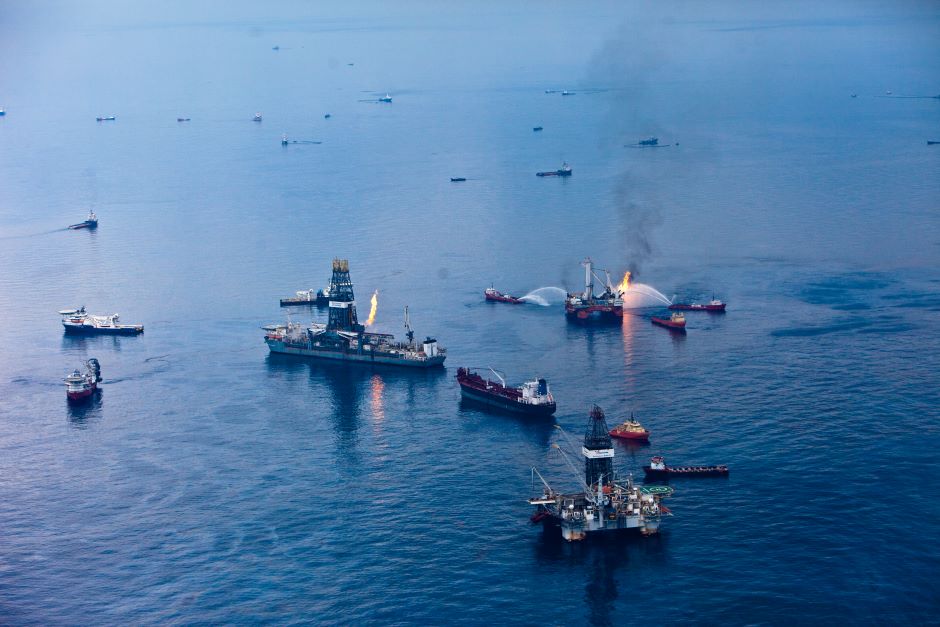Examining Deepwater Horizon: Impacts of Oil Spills on Aquatic Ecosystems
 Various boats fight fires caused by the oil spill in the Gulf of Mexico (Credit: kris krüg via Flickr CC BY-NC-SA 2.0)
Various boats fight fires caused by the oil spill in the Gulf of Mexico (Credit: kris krüg via Flickr CC BY-NC-SA 2.0)The Deepwater Horizon explosion and subsequent oil spill claimed 11 human lives and countless non-human lives. The infamous spill is just one of several large oil spills in the world’s oceans. Oil spills can have devastating impacts on the ecosystem and surrounding cities that rely on the ocean for food and revenue.
According to NOAA, the Deepwater Horizon spill was, far and away, the worst oil spill to date. In 1969, a spill “off the coast of Santa Barbara, California, spilled over four million gallons of oil.” Twenty years later, in 1989, an oil tanker crash in Alaska spilled over 11 million gallons of oil.
For comparison, the Deepwater Horizon spill in 2010 released 134 million gallons of oil into the Gulf of Mexico. NOAA reports that it took six years to reach an $8.8 billion settlement. Despite starting in 2016, restoration work continues today.
How Oil Spills Impact Aquatic Life
Aquatic fish, birds, and mammals are all impacted by oil spills. According to NOAA, the main concerns for wildlife are how the oil impacts their immune systems and physical health, leading to disease or life-threatening conditions.
For fur-bearing mammals and birds, the oil impacts their water repellency, exposing them to harsh conditions. Without this, animals can die from hypothermia due to the cold waters and loss of insulation. Other wildlife are also at risk of consuming or inhaling oil, leading to poisoning and problems in the lungs, immune function, and reproduction.
A different NOAA report cites billions of sea creatures lost as a result of the spill. As many as 8.3 billion oysters were lost, and many other fish, shellfish, and mammals died or were displaced by the spill.
NOAA states that adult fish specifically can “experience reduced growth, enlarged livers, changes in heart and respiration rates, fin erosion, and reproduction impairment.” Fish eggs and larvae can also be sensitive to the oil and experience issues similar to those of adult fish.
Deepwater Horizon Settlement
While oil spills harm the native biodiversity and populations in the impacted area, exposure to the oil can also travel up the food chain, negatively impacting human health. Beyond the health impacts, the damage oil spills cause to the marine ecosystem can have severe impacts on the livelihood of anglers.
In the case of the Deepwater Horizon oil spill, a 2014 study from the University of Florida Institute of Food and Agricultural Sciences shows that recreational anglers may be entitled to $585 million to compensate for damages.
The settlement was decided in 2016, with 20.8 billion submitted by the five Gulf states and their local governments. The money was divided amongst five programs and funds, the specifics of which are reported by NOAA here.
Conclusion
Clean-up for the incident continues today, and the operators of the rig—BP, Anadarko, TransOcean, and Halliburton—will continue to contribute to restoration efforts in the region. Efforts will continue for many years to come as the massive spill left a mark on the Gulf—though hopefully, the ongoing restoration will make a difference.


0 comments